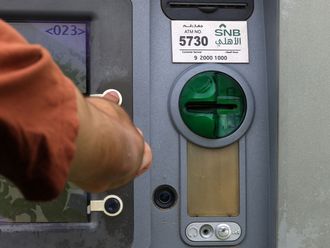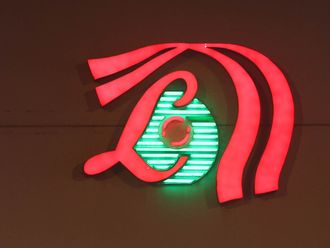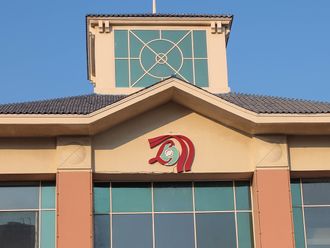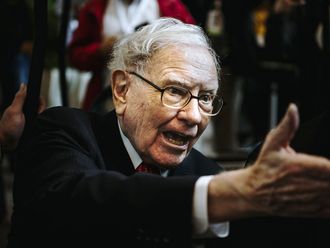Abu Dhabi: The Gulf Cooperation Council (GCC) states, except for Kuwait, which keep their currencies pegged to the US dollar and are major buyers of US government debt will likely maintain the status quo for the foreseeable future despite a downgrade of the world's largest economy by credit ratings agency Standard & Poor's (S&P) on Friday.
Officials from the UAE and Oman spoke in support of the US dollar yesterday.
A senior UAE Central Bank official reaffirmed the country's stance on keeping the dirham's peg to the dollar intact.
"We are pegged to the dollar and will keep it. We don't see the dollar collapse. Because the problem is not in the US only, but also in the European markets," Mohammad Al Tamimi, deputy executive director at the UAE Central Bank's treasury department, told Reuters.
He said there was no alternative to investing in the US market which still remained "the most liquid and a safe market." Al Tamimi's comments followed a UAE Central Bank statement late in July that said: "No fear on the US dollar, although it is exposed to price fluctuations as it happens with all the major currencies."
"Despite the fact that the Central Bank foreign reserves are mostly denominated in US dollars, they are invested mostly in non-US assets," the statement added.
The S&P downgraded the US credit rating for the first time since 1941, lowering it one level to AA+ while keeping the outlook at ‘negative.'
Higher inflation
The move stoked fears the borrowing costs for the world's largest economy are going to increase which may send the country and the global economy spiralling back into recession. As well, a weaker dollar would further erode the purchasing power of countries that have their currencies pegged to the dollar, resulting in higher imported inflation.
"In [the] global economic turmoil the world is going through, what other alternative do we have at the moment but to stick with the US government instruments?" asked a senior Oman government official.
National Bank of Abu Dhabi's Chief Economist Giyas Gokkent told Gulf News that a significant chunk of GCC trade is US dollar denominated.
"Given the fact that the US, which accounts for nearly 25 per cent of the global oil consumption, imports bulk of its oil needs from the region, the dollar peg has made sense. The dollar peg is a simple, straight-forward exchange rate regime and it gives a sense of certainty to business decisions," Gokkent added.
Meanwhile, Gulf markets tumbled yesterday as nervous investors dumped stocks fearing greater downside risks due to Eurozone debt crisis as well as the US ratings action. In the UAE, the Dubai Financial Market (DFM) index fell 3.69 per cent to 1,484.31 while in Abu Dhabi, the Abu Dhabi Securities Exchange general index fell 2.53 per cent to close at 2,603.22. In Oman, the index fell 1.71 per cent to a two-year low. But Saudi Arabia, which slumped 5.5 per cent on Saturday, steadied a day after hitting a five-month low.












